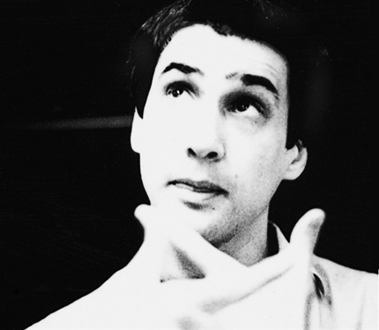
“Art is the enemy of the present; it always wants to change it by introducing other tenses. It alters the percieved world by introducing new rhythms, forgotten, ignored, invisible, impossible”
R. Murray Schafer
I finally finished my article on Arthur Lipsett (available here, in Dutch), which will be published in Gonzo Circus in January. It’s mostly an attempt to contextualise his work, referencing people like Siegried Kracauer, Warren S. McCulloch, George Ivanovich Gurdjieff and Henri Cartier-Bresson, who all seem to have had a profound impact on Lipsett’s view on the world and the potential of cinema. It also mentions the influence his own films had, in particular on George Lucas and Walter Murch, whose ideas on sound-image relationships and the power of interruption, multidimensionality and dislocation (see for example the dystopian science fiction parableTHX 1138) were surely to some extent aroused while watching Very Nice, Very Nice and 21-87.
Here are some of Lipsett’s films (highly compressed video, available on Ubuweb)
-
21-87 (1964, 16mm, b&w, sound, 10’)
A wry comment on a machine-dominated society, filled with dystopian symbolism. This film conveys Lipsett’s concern for an increasingly de-humanized civilization, foreshadowing his embryonic agoraphobia and subsequent withdrawal from public life. The title would be cited more than once in George Lucas’s work, serving, for example, as Princess Leia’s cell number in Star Wars.
A Trip Down Memory Lane (1965, 16mm, b&w, sound, 12’)
A surrealist time capsule combining fifty years of newsreel footage, this film constitutes a brief, but explosive, tour of post-war technocracy. Lipsett’s first pure collage film, composed exclusively from stock image and sound from the National Film Board archives.
Fluxes (1968, 16mm, b&w, sound, 24’)
Lipsett completed this film during a period of declining institutional support and increased psychological stress, which would result in more pessimistic, diffuse work. A “phantasmagoria of nothing”, based on a series of creative frictions between military motif, religious rhetoric, newsreel footage and obscure science fiction film dialogues.
-
The Arthur Lipsett Project: A Dot on the Histomap (a documentary by Eric Gaucher, 2007)
“If you would look at these masks, they might remind you of someone you know. At first glance they might seem all different but if you thought about it for a while you could see that they are all really doing the same thing. What they are telling you, what they are telling me, is a kind of reminder that man is a human being with many kinds of different emotions, and travels, and skeems… whirling and twirling. They could be seen as if they were still snapshots of an actor going through a whole range of human experiences, and each frozen still would be like a mask, quite different from the others and yet it was the same man performing all those emotions. It makes you realize what a great multiplicity a man is, a strange creature inhabiting the earth, a dot on the histomap of evolution“
Arthur Lipsett
A few years ago the Global A released some of the soundtracks of Lipsett’s films on vinyl. Get them while you can (limited edition). In the meantime, you can listen to the MP3‘s.
Very Nice, Very Nice (The soundtrack of his first film, which Stanley Kublick called “one of the most imaginative and brilliant uses of the movie screen and soundtrack I have ever seen””. This was actually initially developped as a sound montage, entitled “Strangely Elated”)
[audio:http://arthurlipsett.com/VERYNICEVERYNICE.mp3]
21-87
[audio:http://arthurlipsett.com/21-87.mp3]
A Trip Down Memory Lane
[audio:http://arthurlipsett.com/ATRIPDOWNMEMORYLANE.mp3]
Freefall (This soundtrack was supposed to be composed in collaboration with John Cage. However, after an exchange of letters, Cage withdrew his participation. He wrote: Lipsett deed voor de soundtrack van deze film trouwens een beroep op componist John Cage, die zich na een korte briefwisseling echter terugtrok uit onvrede met Lipsett’s controledrang. Cage schreef: “For the past ten to fifteen years I have been concerned with not controlling a continuity of sounds, and certainly not controlling the togetherness of sound and images, sounds and stories, or sounds and movements of dancers, I am insistent upon letting things go together… Your letter makes me fear that you do not take this attitude.”)
[audio:http://arthurlipsett.com/FREEFALL.mp3]